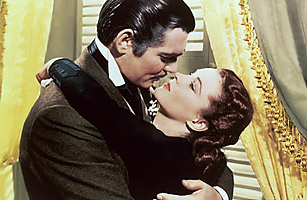
My copy of Margaret Mitchell’s Gone with the Wind — a 114th printing, now a bit tattered — carries an inscription from my mother: “A good book is timeless.” Mitchell’s novel, whose 75th anniversary has arrived amid many reconsiderations and even more sales, may or may not be a good book. But it has always been a popular one. Published in the summer of 1936 at the startling Depression price of $3 — the equivalent of nearly $50 today — it sold a million copies by Christmas. The novel now ranks among the best-selling books ever published in English. Its success has always defied critical understanding. In a typical 1936 review, in The New Republic, Malcolm Cowley found Gone with the Wind not bad but puzzling. He wrote that Mitchell — a minor Atlanta newspaperwoman — “blundered into big scenes that a more experienced novelist would hesitate to handle for fear of being compared unfavorably with Dickens or Dostoyevsky.” Somehow she pulls it off. “I would never say that she has written a great novel,” Cowley wrote, “but in the midst of triteness and sentimentality her book has a simpleminded courage that suggests the great novelists of the past.” Gone with the Wind also helps explain why the South sends so many of its sons to fight wars. Scarlett may be a venal grasper, but she and Rhett Butler have little patience for war talk even as the plantation boys around them become “intoxicated” by the idea of war in 1861. Ashley is also wary. At the Twelve Oaks barbecue in Chapter 6, he tries to quiet the wild enthusiasm before Bull Run. “Let’s don’t have any war,” he tells the roomful of hotheads. “Most of the misery of the world has been caused by wars.” Yet he goes off to fight — and so does Rhett, eventually. Even Scarlett ends up killing a Yankee. The conflation of honor with the duty to fight defeats all other impulses. Like most feudal societies, the South had to defend its honor because it had little else. In the South, the hotheads usually prevail. Gone with the Wind is surely a retrograde book — it is unforgivably racist — but a kind of progressivism emerges from it. For example, most of its men are far weaker than Scarlett. The book is not really a tale of North vs. South but of old South vs. new. Ashley represents the old; he “was born of a line of men who used their leisure for thinking, not doing, for spinning brightly colored dreams.” Scarlett, by contrast, is “diamond hard.” “I’ve found out that money is the most important thing in the world,” she tells Rhett late in the book. With its loving descriptions of organdy and horsemanship, Gone with the Wind seems genteel, but it is actually an unrelenting tale of how honor gives in to greed. Mitchell knew that loss was as tragic and inevitable as the South’s self-imposed despoiling. See the top 10 movie catchphrases.
See TIME’s Hollywood covers.